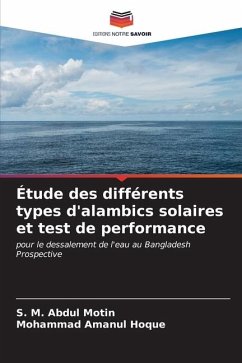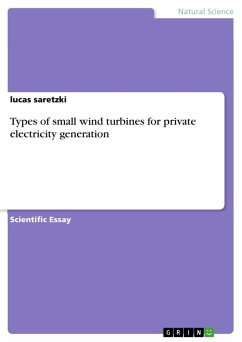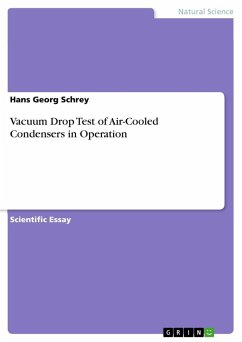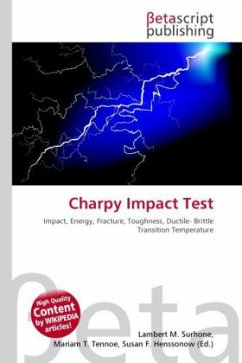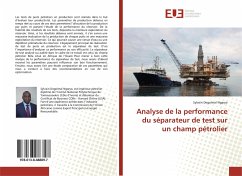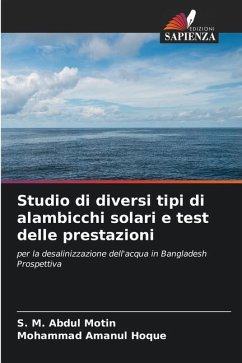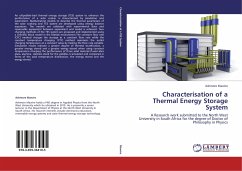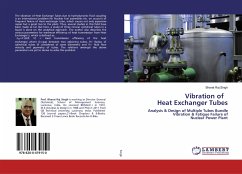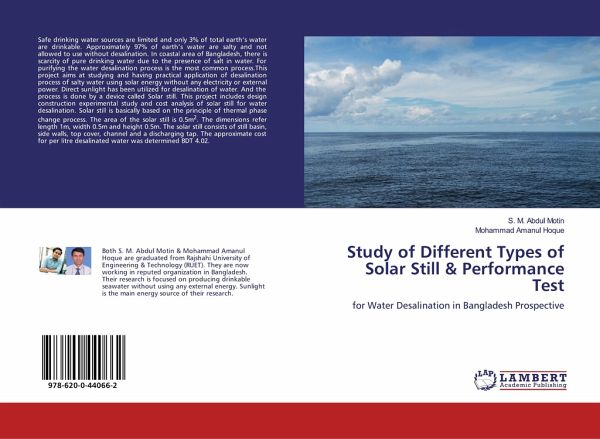
Study of Different Types of Solar Still & Performance Test
for Water Desalination in Bangladesh Prospective
Versandkostenfrei!
Versandfertig in 1-2 Wochen
26,99 €
inkl. MwSt.

PAYBACK Punkte
13 °P sammeln!
Safe drinking water sources are limited and only 3% of total earth's water are drinkable. Approximately 97% of earth's water are salty and not allowed to use without desalination. In coastal area of Bangladesh, there is scarcity of pure drinking water due to the presence of salt in water. For purifying the water desalination process is the most common process.This project aims at studying and having practical application of desalination process of salty water using solar energy without any electricity or external power. Direct sunlight has been utilized for desalination of water. And the proce...
Safe drinking water sources are limited and only 3% of total earth's water are drinkable. Approximately 97% of earth's water are salty and not allowed to use without desalination. In coastal area of Bangladesh, there is scarcity of pure drinking water due to the presence of salt in water. For purifying the water desalination process is the most common process.This project aims at studying and having practical application of desalination process of salty water using solar energy without any electricity or external power. Direct sunlight has been utilized for desalination of water. And the process is done by a device called Solar still. This project includes design construction experimental study and cost analysis of solar still for water desalination. Solar still is basically based on the principle of thermal phase change process. The area of the solar still is 0.5m2. The dimensions refer length 1m, width 0.5m and height 0.5m. The solar still consists of still basin, side walls, top cover, channel and a discharging tap. The approximate cost for per litre desalinated water was determined BDT 4.02.



